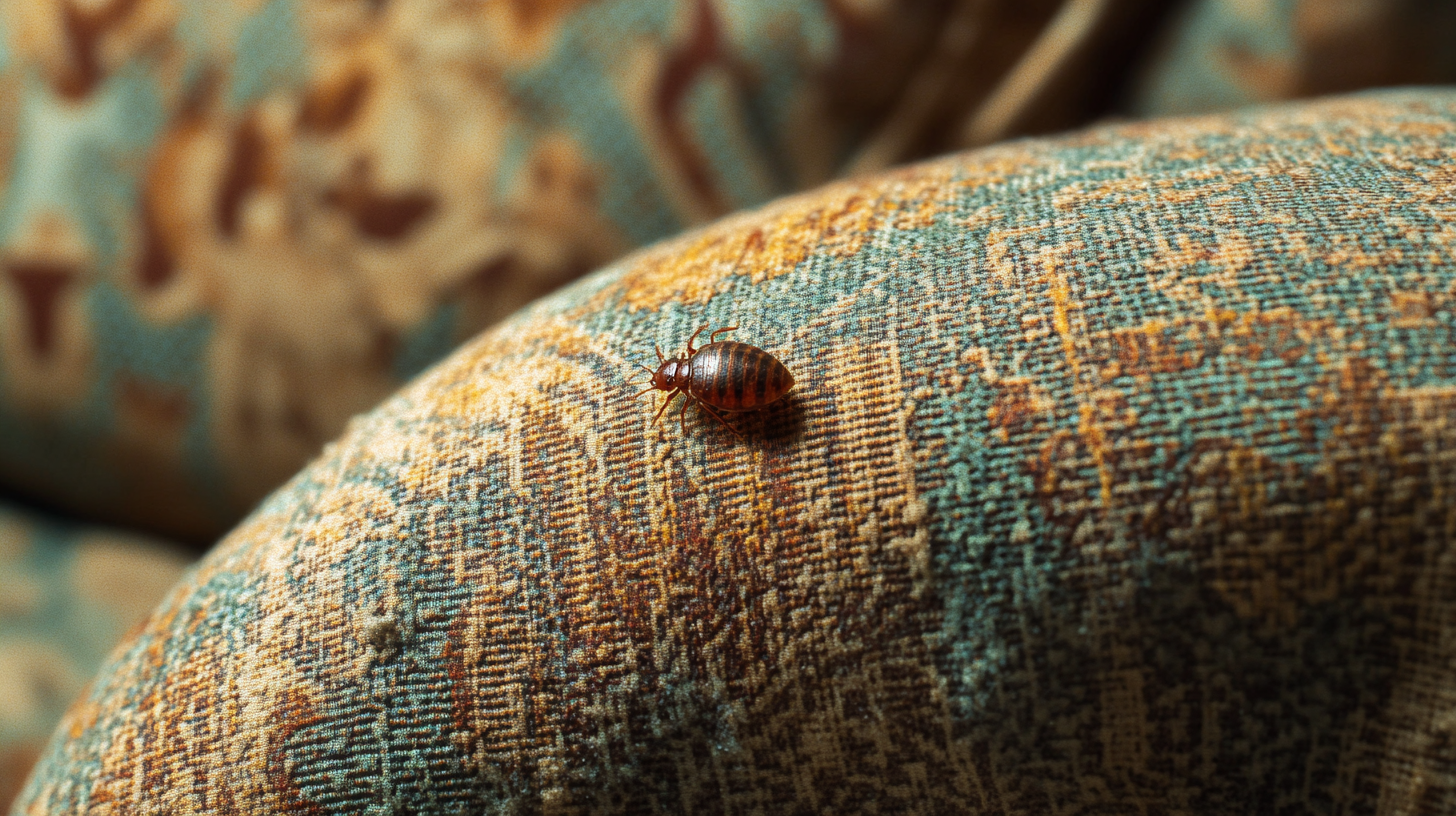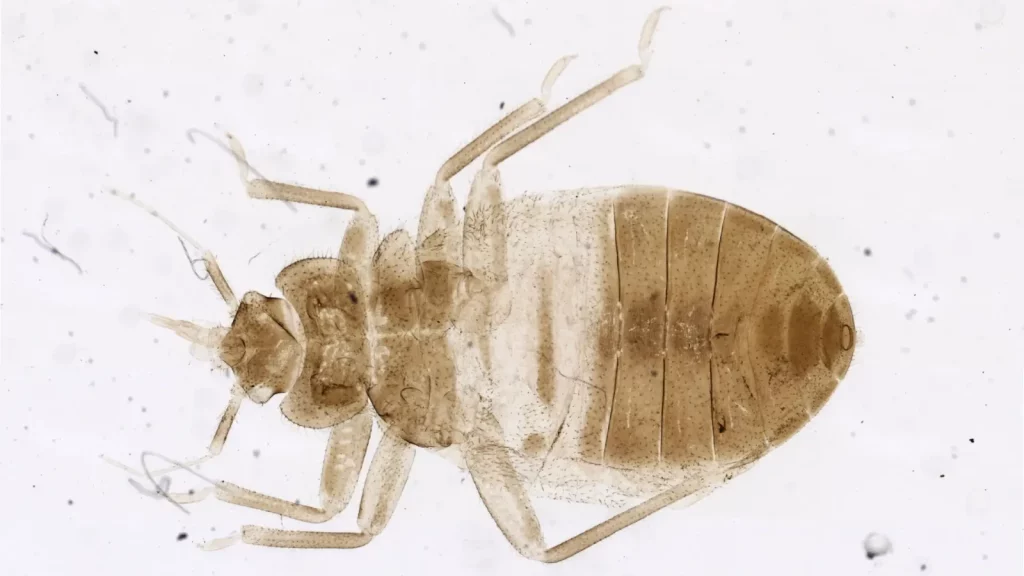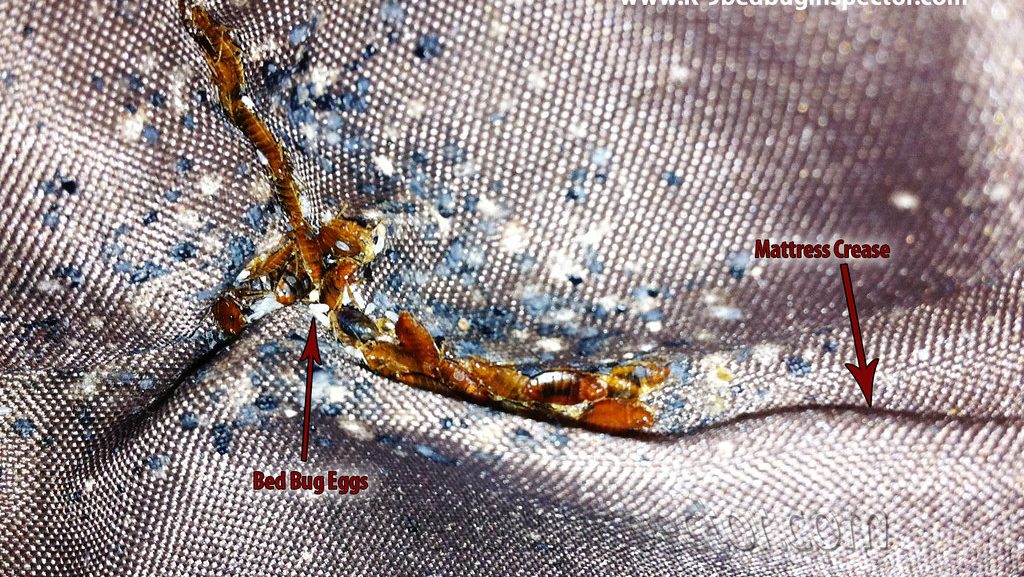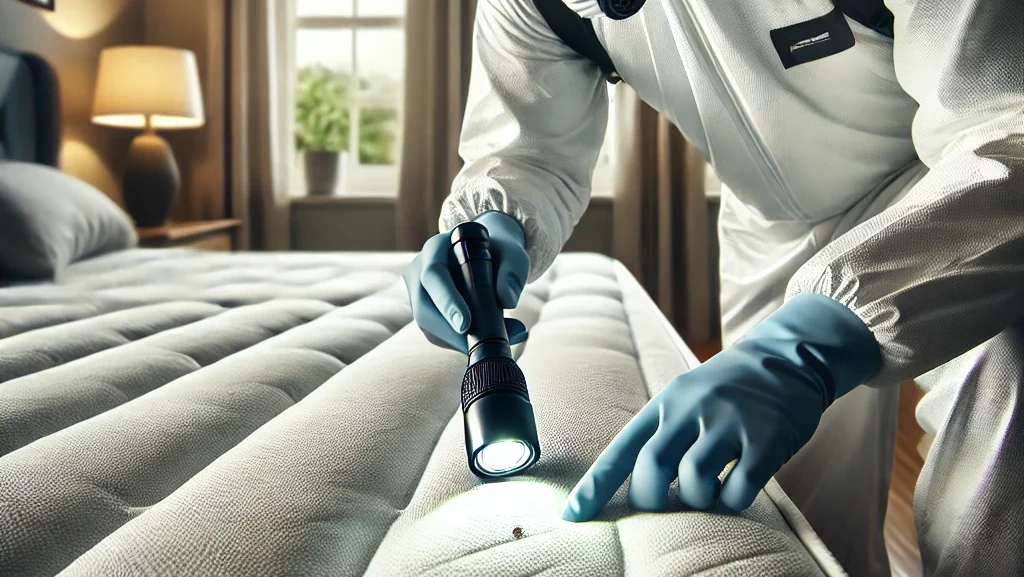Key Takeaways
-
Exclusive Blood Diet: Bed bugs feed only on blood—preferably human, but they’ll also feed on pets, birds, or rodents when needed.
-
Adaptable Survivalists: They can survive for months without feeding, especially in cooler environments.
-
Subtle Signs of Feeding: Look for clustered bites, blood stains, fecal spots, and shed skins around beds and furniture.
-
Nocturnal Feeders: Bed bugs are active at night, drawn to your body heat and carbon dioxide while you sleep.
-
Effective Prevention Methods: Inspections, mattress encasements, decluttering, laundering, and travel precautions help prevent infestations.
 Bed bugs are tiny pests that feed on blood (human and animal) to survive. If you’re wondering what bed bugs eat, the answer is simple: they feed on blood, and they need it to grow, reproduce, and live. Let’s explore the bed bugs’ diet, how they feed, and what you can do to prevent them from becoming a problem.
Bed bugs are tiny pests that feed on blood (human and animal) to survive. If you’re wondering what bed bugs eat, the answer is simple: they feed on blood, and they need it to grow, reproduce, and live. Let’s explore the bed bugs’ diet, how they feed, and what you can do to prevent them from becoming a problem.
What Do Bed Bugs Eat?
The bed bugs diet only includes blood. Human blood is their favourite, but when humans aren’t available, they can feed on pets, birds, and even rodents. They don’t eat food crumbs, dead skin, or any other materials. Their mouths are specially designed to pierce the skin and suck blood, which is their only source of nutrition. Visit our Species, Control, and DIY Guide sections for additional resources on bedbugs and ways to tackle a bedbug infestation.

Not getting a solution?
Get your free pest control estimate today!Can Bed Bugs Feed on Animals?
Here’s the thing: bed bugs prefer us humans (flattering, isn’t it?), but they’re adaptable creatures. If you’re away for a long vacation and your home turns into a ghost town, your furry friends—dogs, cats, even your kid’s pet hamster—might become unwilling snacks. Birds and rodents can also become meal tickets if they’re nearby.Bed Bugs Diet on Pets
-
Pets: Dogs and cats can be bitten by bed bugs, especially if the infestation is large.
-
Birds: Chickens or pet birds can also be targets.
-
Rodents: Small animals like mice and rats may serve as alternative food sources.
How Often Do Bed Bugs Feed?
Not as often as you’d think. These critters are surprisingly patient—feeding every 5 to 7 days if there’s an available host. Here’s where it gets wild, though: without a food source, bed bugs can go months—even a year in cooler temperatures—without eating. They’re basically the fasting champions of the insect world. Blood isn’t just a tasty snack for bed bugs; it’s essential for their survival. Females require regular blood meals to lay eggs. No blood means no babies, which sounds good for you, but bed bugs can hold out a frustratingly long time. If you feel things have gone out of control, it is advised to contact pest control professionals. Our team can provide a customized approach to protect your home effectively.
Signs of Bed Bug Feeding
To know if bed bugs are feeding on you or your pets, look for these signs:Here are the signs to look for:
-
Bite Marks: Small, itchy red bumps on your skin, often in a line or cluster.
-
Blood Stains: Tiny reddish-brown spots on your sheets or clothing from crushed bed bugs or their waste.
-
Fecal Spots: Dark spots on mattresses, walls, or furniture where bed bugs hide.
-
Shed Skins: Clear, shell-like remains that bed bugs leave behind as they grow.
Are Bed Bugs Feasting on You? Here’s How to Tell
-
Itchy Bites: Red, itchy bumps often appear in clusters or lines on exposed skin areas.
-
Blood Stains: Tiny reddish-brown stains on sheets or pillowcases may be from crushed bed bugs.
-
Fecal Spots: Dark, rust-coloured spots on mattresses or furniture are bed bug droppings—not chocolate.
-
Shed Skins: Translucent shed exoskeletons clearly indicate an active infestation.
How Do Bed Bugs Feed?
Bed bugs are sneaky. They come out at night when you’re sleeping, attracted by the carbon dioxide you exhale as well as the heat of your body. Once they find you, they use their tiny mouths to pierce your skin and draw blood. This process usually takes 5-10 minutes. After feeding, bed bugs leave behind small, red, itchy bite marks on exposed areas like the arms, neck, face, or legs. These bites may take hours or days to appear and lack the central red spot seen in flea bites. If you notice unexplained bites along with signs like blood stains or dark spots on furniture, it’s time to act. Contact a professional pest control service today to protect your home.
Stop the Midnight Buffet—Simple Prevention Tips
- Honestly, prevention is way easier than extermination. Here’s how to keep your home off the bed bug menu:
-
Regular Inspections: Check mattresses, bed frames, and furniture regularly for any signs of bed bugs.
-
Protective Covers: Use mattress encasements to prevent bed bugs from nesting or hiding inside.
-
Declutter Spaces: Reduce clutter in bedrooms to eliminate common hiding spots for bed bugs.
-
Wash Bedding Weekly: Launder sheets and bedding in hot water and dry on high heat to kill any hidden bugs.
-
Travel Smart: Inspect hotel rooms and keep luggage elevated and away from beds or carpets.





